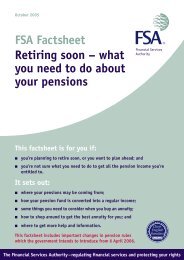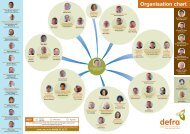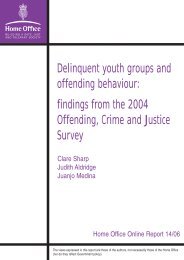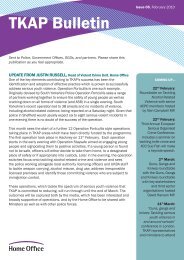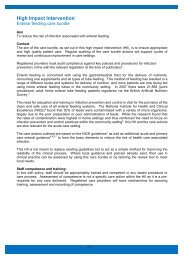Sexualistation of Young People
Sexualistation of Young People
Sexualistation of Young People
Create successful ePaper yourself
Turn your PDF publications into a flip-book with our unique Google optimized e-Paper software.
Sexualisation <strong>of</strong> <strong>Young</strong> <strong>People</strong> Review<br />
78<br />
• Increased funding should be made<br />
available for staffing, provision and<br />
training <strong>of</strong> existing youth workers<br />
so that they feel confident and<br />
sufficiently skilled to have discussions<br />
with young people around sexuality,<br />
sexist and sexual bullying and gender<br />
inequality. More materials are also<br />
needed to support youth workers to<br />
develop such work.<br />
v) Digital literacy and the internet<br />
While the internet brings unprecedented<br />
opportunities for children and young<br />
people to learn, develop and enjoy, it also<br />
brings risks. Children – and their parents<br />
– need education to understand and<br />
negotiate those risks. At the same time,<br />
steps should be taken to make the virtual<br />
world as safe as possible. I therefore<br />
recommend that:<br />
• The UK Council for Child Internet<br />
Safety (UKCCIS) should be<br />
supported to further develop its<br />
current online resource centre where<br />
parents can access internet safety<br />
advice. Strategies should be simple<br />
and practical, and link to parents’<br />
existing life and parenting skills.<br />
From meeting with parents, I appreciate<br />
that expecting them to take complete<br />
responsibility for their children’s digital<br />
literacy is both unrealistic and unfair. Our<br />
approach to improving digital literacy must<br />
be two-pronged, and I recommend that:<br />
• Digital literacy is made a compulsory<br />
part <strong>of</strong> the national curriculum<br />
for children from the age <strong>of</strong> five<br />
onwards, and that age-appropriate<br />
materials are made available to pupils<br />
at every stage <strong>of</strong> their education.<br />
Pro-anorexia (pro-ana) and pro-bulimia<br />
(pro-mia) websites advocate and<br />
encourage the perception <strong>of</strong> eating<br />
disorders as lifestyle choices rather<br />
than serious psychological disorders.<br />
They <strong>of</strong>ten provide tips on how to lie<br />
to doctors, which foods are easiest to<br />
vomit up and advice on initiating and/or<br />
maintaining anorexic or bulimic behaviour.<br />
I recommend that:<br />
• The government should work with<br />
internet service providers to block<br />
access to pro-ana and pro-mia<br />
websites.<br />
vi) Positive role models for children<br />
Children – especially girls – need positive<br />
role models to help challenge gender<br />
stereotypes and encourage them to<br />
develop their self-esteem based on<br />
aptitude and accomplishment, not physical<br />
appearance. I would like to put together<br />
a working group <strong>of</strong> inspirational working<br />
women to help identify what we can<br />
do to help this generation <strong>of</strong> teenagers<br />
realise their potential and shape policy in<br />
this area.<br />
An initial project for the group could<br />
be a short film featuring a dozen or so<br />
inspirational women talking about their<br />
achievements, which could then be<br />
distributed to schools or made available<br />
for download. Schools could be invited to<br />
compete for a visit from one <strong>of</strong> the group<br />
members, or the chance to gain work<br />
experience with them. Several high pr<strong>of</strong>ile<br />
sports and business women have already<br />
agreed in principle to be involved.<br />
A similar scheme for boys could challenge<br />
the hyper-masculine ideal and provide<br />
alternative role models. The White Ribbon<br />
Campaign, for example, already runs<br />
workshops where boys can explore issues<br />
like gender stereotyping and sexualisation.<br />
Such workshops could be funded so that<br />
more schools have access to them.



